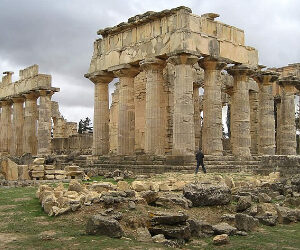By Arezki Daoud: 22 February 2019 – North Africa remains confronted with so many sources of instability, while the Sahel has virtually collapsed. Egypt continuous on its downward spiral of government abuse. Authorities have been hanging people over the past two weeks following expedited trials that failed to deliver verdicts that are beyond reasonable doubt. The insurgency there continues with this week’s killing of three police officers in the center of Cairo, while government forces pursue their ruthless counter-insurgency strategy that cannot be tamed. The Egyptian military and interior ministry often like to publish statistics that cannot be independently verified, and even if they were accurate, the published figures hint on an ongoing brutal war being waged in regions like the Sinai Peninsula and the Western Desert.
Libya is in a more chaotic place and so no one is in control. War has now propagated to the south, where the forces of Haftar are seeking to pacify the southwest, pushing all sorts of bad people, from smugglers and criminal gangs to insurgents down to the Chad and toward the Algerian border, causing a major regional concern. Within southern Libya, concerns over growing ethnic conflict are alarming, as Arab and Tubu tribes may be escalating their own war. Elsewhere in Libya things are not getting any better. Also in Libya, several videos published in social media hint on Egyptian troops being very active in specific regions, as foreign powers continue to operate there either directly or via proxies.
Algeria is also going through a turbulent time. Although the terror risk has substantially eased, Algerian politics remains immature, with regime operatives pushing an ailing president to run for a fifth term, despite Bouteflika unable to articulate a single word. Instead of letting the old leader take care of his poor health, the regime has taken the extreme position of moving up front and going forward with a strategy that has no end game. It’s all about buying time until a consensus person emerges. Meanwhile, unexpectedly, thousands of Algerians are currently taking to the streets in impromptu protests to push against the fifth mandate of an old and sick man. They are unorganized because the opposition is entirely unable to coordinate an effective response against what is clearly a power grab by a few.
Morocco is consumed by the Western Sahara (WS) issue, and these past weeks saw a [one step forward, two step back] situation. The big win for the Alaouite Kingdon is its renewal of a fisheries deal with the European Union. Morocco won a huge victory when its diplomats convinced Europe to incorporate the waters of Western Sahara as part of the deal. While this was the one-step forward, there are many other bad news for Rabat that could nullify its fisheries gain. Firstly, Rabat has seen a slight deterioration of its relations with Saudi Arabia, its traditional and one of its staunchest allies, and key financial backer. Saudi Arabia has generally sided with Morocco on the WS issue, but the Saudis have recently signaled the potential for a review of their position on this issue. On the African scene, the news is not good either as the Chairmanship of the African Union switched to Egypt’s el-Sissi, a man who has not been so keep on supporting Morocco there. Compounding the African problem, another pro-Polisario (Morocco’s opponent in the WS crisis), South Africa just returned to the UN Security Council as a non-permanent member and has taken a key role in Africa’s security within the African Union. While European lawmakers gave Morocco a clear victory on the fisheries front, not all businesses seem to be keen on going along with that. A Danish organization that manages the pensions of the school and university systems decided to divest from Morocco’s phosphate giant OCP, considering it operating in a “conflict zone.” Meanwhile, the streets of Rabat saw this week protests from public schools, and the police were called to disperse them.







